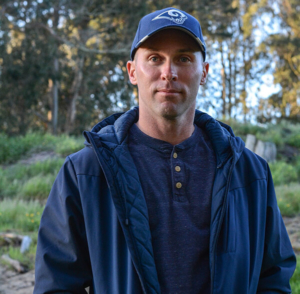Zachary Moore’s bio is that of which movies are made of. After spending 22 years in a 6×9 foot prison cell for murder, he now sits in an open-plan office in San Francisco, surveying code. Talk about a turn-around: he went from a life prison sentence to a $100k+ engineering job. Here’s how.
Sentenced to life for murder at 15, Moore will spend his 40s in a very different context, alongside other six-figure salary colleagues from the prestigious background – Stanford graduates, for once. It is a story of perseverance, hard work, and redemption – but also makes one wonder if America’s common practice of background-checking for criminal records is, indeed, one to be maintained.
The makings of a murderer
Zachary Moore was a suburban, inland kid like many others that spent time playing video games and sports. Yet, grew up in a dysfunctional home with alcoholic parents and domestic abuse. As an alternative, he turned to self-medication with alcohol and substance abuse.
“I was ignoring the problems in my life, numbing them,” Moore told The Hustle in a series of recent interviews. “Alcohol and drugs made my emotions more extreme… and everything compounded.” On November 8, 1996, an argument at home pushed Moore over the edge and he stabbed his younger brother – a crime which made headlines for weeks.
Though his defense attorney argued the crime resulted from a psychotic break due to his family context, he was tried as an adult (in agreement with a then-recent California Law). Moore was shipped from juvenile hall to a high-security prison shortly before his 17th birthday.
The turn-around for Zachary Moore
After several transfers between prisons, Moore ended up in Ad-Seg in 2000, put in isolation, and 23h-lockdowns a day. This extreme made him gravitate towards inmates that were trying to better themselves, realizing his missteps. “Millions of kids in the world grow up like me and find other ways to work through things,” he says in the interview.
The path was long: Moore attended Buddhist services and meditation classes, and later enrolled in an online college program at Palo Verde College, graduating with a 3.89 GPA. After another couple of transfers, he landed in San Quentin State Prison, just north of San Francisco. And that’s when Silicon Valley investor Chris Redlitz crossed his path.
The importance of second chances
In 2010, Redlitz was invited to give a business talk to inmates at San Quentin. Along with his wife, Beverly, he founded The Last Mile (TLM), an entrepreneurship program aimed to prepare incarcerated individuals for successful reentry through business and technology training.
TLM has the goal of empowering inmates with “hireable skills” to increase their chance at employment upon release. At Silicon Valley, more than anywhere else, coders are a highly sought-after group. Thus, a full-scale coding program at San Quentin was born.
Video seminars were used to get around the prison’s strict no-internet policy. And Moore was among the first students when his institution received a chapter of the program in 2015. “I knew nothing about technology, but I had to take a chance on it,” he tells The Hustle. “I felt it was a once-in-a-lifetime opportunity.”
How The Last Mile works for people like Zachary Moore
To apply, inmates must:
- Have no infractions committed in the 2 years prior to applying (cybercrimes are an automatic disqualifier);
- Have a track record of seeking out self-improvement behind bars;
- Pass a logic test that gauges linear thinking and problem-solving skills.
Zachary Moore would have classes four times a week, from 7 am to 2 pm, to learn front-end code like HTML and CSS. Initially writing code by hand, then following instructional videos and screenshots of real-life user flows. With no access to real-world scenarios, creativity was a must.
A few months later, the course moved towards back-end coding, incorporating Javascript and NodeJS. Later, he requested a transfer to another facility which offered more advanced training, with advanced algorithms and data science.
A once-in-a-lifetime opportunity
A state bill passed in California in 2014 decreed that youth (under 18 of the time of the crime) who had been tried as adults were entitled to parole hearings. This was crucial to determine eligibility for early release. In 2018, Moore was granted a hearing before the parole board.
Zachary Moore’s parole was cleared, and during the 5 months in which the parole board could still overturn the decision, he “threw [himself] into code,” completing the final tier of his course work. After 22 years behind bars, Moore walked free on November 12, 2018.
For the initial six months, he worked part-time as an engineer for The Last Mile before beginning to apply for engineering internships at Silicon Valley tech companies – facing his fears and prejudice from hiring managers.
The Last Mile’s Chief Operating Officer, Jennifer Ellis, explains resistance is common. Tech companies are often resistant to hiring formerly incarcerated persons over concerns regarding the legality and cultural integration concerns. It’s due to this scenario that 25 states and 150 cities have already passed legislation barring the inclusion of applicants’ criminal history on job applications.
Moore found his break in May 2019, becoming an engineering intern at Checkr, a background check technology firm. In September, the company hired him as a full-time engineer. Today, 6% of its employees are “fair chance talent,” or people with prior criminal backgrounds.
They, like Moore, are still atypical graduates. Or, as Redlitz also said to The Hustle, these hardships make former inmates desirable job candidates in a tech space that values resilience. “There’s this idea in Silicon Valley that if you fail, you get up, dust yourself off, and try again,” says Redlitz. “Who embodies that better than a guy like Zach?”

International Marketing Leader, specialized in tech. Proud to have built marketing and business generation structures for some of the fastest-growing SaaS companies on both sides of the Atlantic (UK, DACH, Iberia, LatAm, and NorthAm). Big fan of motherhood, world music, marketing, and backpacking. A little bit nerdy too!






